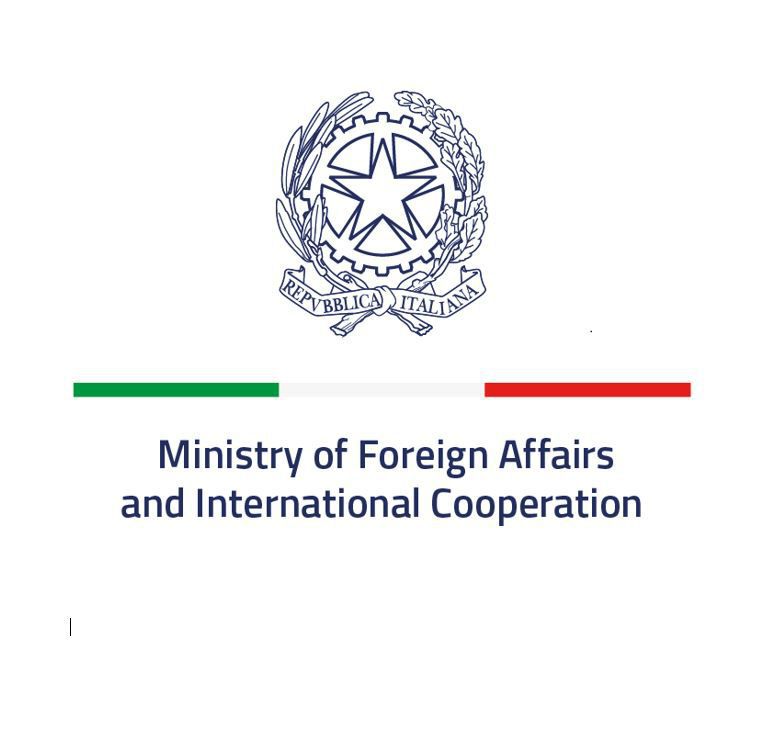MAECI – NEARSHORING, STRUCTURE OF GLOBAL VALUE CHAINS AND VOLATILITY: OPPORTUNITY FOR ITALY OF GREATER INTEGRATION WITH THE AFRICAN CONTINENT
The research project aims to study the relationship between the structure of global value chains (CGV), the existence of possible bottlenecks and the volatility of the final output. GVCs are one of the most important phenomena of the globalization process of the last three decades and have often been seen as a new possible driving force for economic growth.
However, the COVID-19 pandemic and the war in Ukraine have highlighted how GVCs have not only opened up new possibilities for economic growth but also showed their vulnerability to external shocks, fueling a debate between scholars and policy makers on the advisability of a shortening (nearshoring) of GVCs in order to reduce the risks of interruption of supplies. To increase the robustness of GVCs, investments are required in order to isolate the production phases from possible shocks. This means, at least in part, shortening the GVCs and bringing the production phases closer to their final demand. To increase the resilience of GVCs it is instead necessary to pursue a diversification strategy to be more flexible with respect to future shocks, regardless of where they occur.
In light of the current discussion on the issue and the particular geopolitical context, it is of fundamental importance to develop not only a theoretical system but also one for measuring nearshoring and diversification phenomena that guides the production of new empirical evidence on which strategies minimize the volatility of production. The debate on the slowdown of globalization on the role of GVCs and their evolution cannot neglect the potential for Europe and Italy of strengthening ties with the African continent and the Mediterranean area.
DISCLAIMER: The Project titled “ NEARSHORING, STRUCTURE OF GLOBAL VALUE CHAINS AND VOLATILITY: OPPORTUNITY FOR ITALY OF GREATER INTEGRATION WITH THE AFRICAN CONTINENT “ is realized with the support of the Policy Planning Unit of the Ministry of Foreign Affairs and International Cooperation pursuant art 23-bis of Presidential Decree 18/1967.


Objectives
The project focuses on the different strategies that can be pursued to reduce the volatility of production in the context of GVCs. In achieving this goal, the project offers a new and more precise approach to the concept of nearshoring, which has received great attention in light of the turbulent geopolitical context of recent years.
The project is developed in two phases: first, an aggregate analysis that explores how different characteristics of the GVCs are related to the volatility of production; second, closely linked to geopolitical current events, the project aims at identifying possible substitutes for imports of natural resources from Russia and the opportunities that can arise for Europe and Italy from a strengthening of ties with the African continent and the Mediterranean area.
The main research questions are:
Considering nearshoring in terms of length, geographic concentration and proximity to final demand, what characteristics of the structure of GVCs are associated with a reduction in production volatility in Europe?
Which countries specialize in products similar to those that Russia exports to Europe? In the case of a reconfiguration of European import flows to Africa and the Mediterranean region, what position would Italy occupy in this commercial network?
Researchers
The group of researchers involved in the project includes:
Two Senior researchers, Valentina Meliciani and Maria Savona
Two Junior researchers, Ariel Wirkierman and Filippo Bontadini
This is a group of experts in the topics covered by the project.
In particular, Professor Valentina Meliciani and Professor Maria Savona have published numerous articles in prestigious international journals on the topics of the project, with a specific focus on global value chains. Dr. Ariel Wirkierman is an international expert in the use of input-output tables; on this subject he has published in prestigious international journals. Dr. Bontadini holds a PhD from the SPRU, University of Sussex, on the topic of global value chains as well as having published in prestigious journals in the thematic area of the project.
Aims and expected results
The project aims to provide new indications on the structural characteristics of GVCs that favor the stability of production. This is of great relevance to the current debate regarding the idea of nearshoring which has so far remained a poorly defined concept from a conceptual and measurement point of view. Nearshoring lends itself to different interpretations (in terms of geography, concentration or shortening of the GVCs) and the project therefore aims to identify clear measures that capture the different aspects. In this way, the project’s results will provide valuable information to policy makers regarding the different restructuring strategies of the GVCs and the possible consequences in terms of production stability.
The research focuses on a highly topical issue and will provide new empirical evidence on Europe and Italy’s dependence on Russia, especially in the energy and natural resources fields. It will also identify other possible commercial partners, focusing on the African continent and the Mediterranean region in which Italy has the opportunity – given its geographical position – to assume a leading role.
Partner
The project will be carried out with the scientific partnership of the United Nations Institute for Education and Research (UNITAR), which aims to develop research in science and executive education. Through its network of specific experts on the trade and economics context in the African continent, it is a strategic partner both in the data gathering phase, in data verification and the subsequent dissemination of the results.
The program also benefits from the scientific and methodological involvement of UKTPO (UK Trade Policy Observatory). It is a partnership between the University of Sussex and Chatham House, an independent and interdisciplinary group of researchers dedicated to the analysis and explanation of international trade and trade policy, straddling the national, international and multilateral level. The UKTPO offers a wide range of skills and services to help support public institutions, international organizations and companies in the development of strategies and the development of new trade policies in the post-Brexit era.
Output